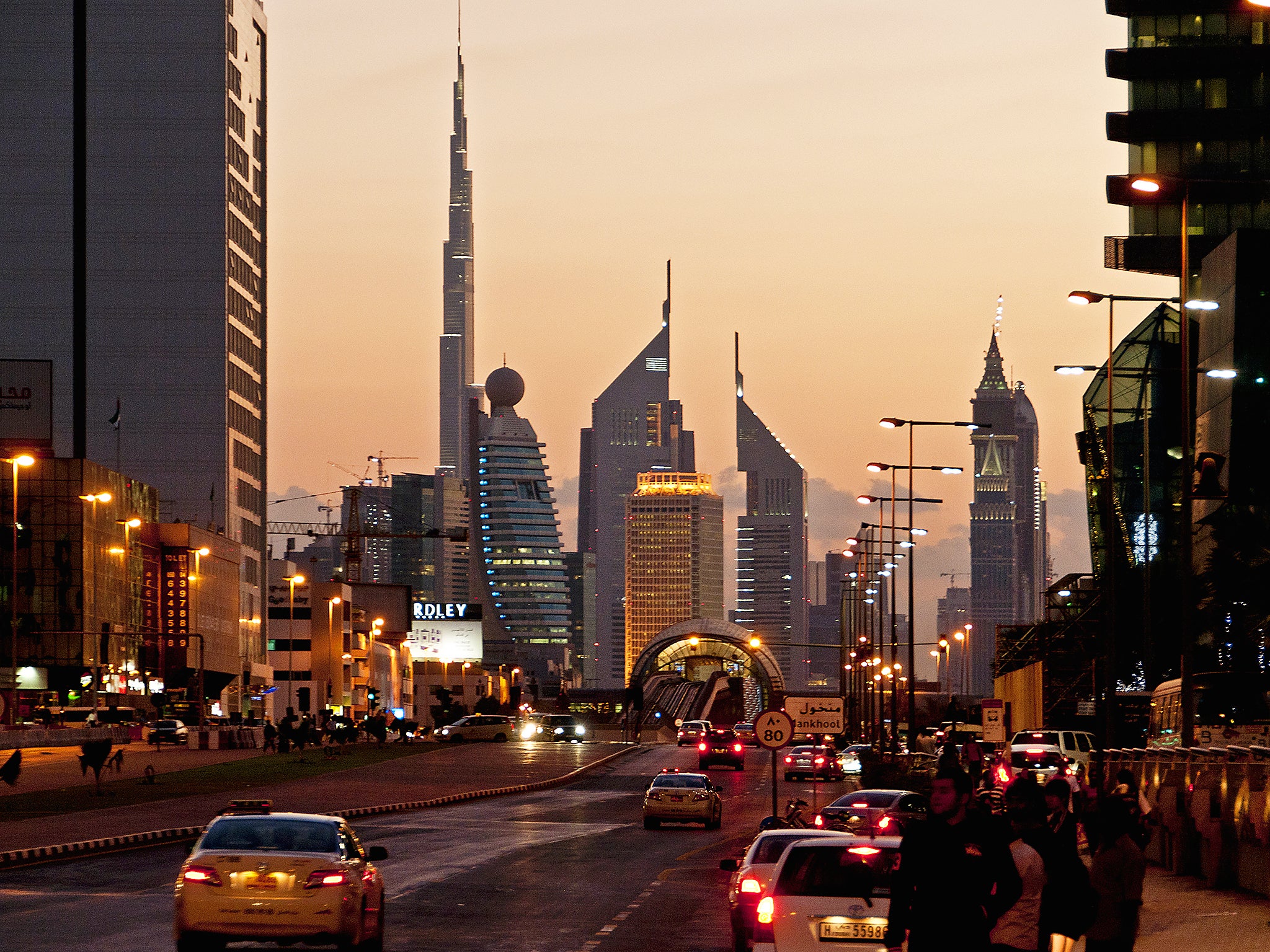The UAE's position on gay rights is actually surprisingly progressive – and I should know
In Arabic we have no words for 'gay' or 'straight'. But we have over 200 words for love, and we have gender neutral terms too. I prefer not to call myself 'gay' in Western terms because I want to decolonise my body

Your support helps us to tell the story
From reproductive rights to climate change to Big Tech, The Independent is on the ground when the story is developing. Whether it's investigating the financials of Elon Musk's pro-Trump PAC or producing our latest documentary, 'The A Word', which shines a light on the American women fighting for reproductive rights, we know how important it is to parse out the facts from the messaging.
At such a critical moment in US history, we need reporters on the ground. Your donation allows us to keep sending journalists to speak to both sides of the story.
The Independent is trusted by Americans across the entire political spectrum. And unlike many other quality news outlets, we choose not to lock Americans out of our reporting and analysis with paywalls. We believe quality journalism should be available to everyone, paid for by those who can afford it.
Your support makes all the difference.Recently, I was asked to defend my support of the UAE and explain why I am so enthusiastic about a nation that is perceived to enforce torture, lengthy prison terms and even the death penalty against gay people. I explained my own experiences and that the reality is more nuanced than people might believe.
Take Article 354 of the UAE Penal Code, which remains unclear in the original Arabic and in translation. It condemns “coercive sodomy or intercourse with a female” but can (and has by international sources) be reimagined to present a case for the persecution of consensual same sex relationships between adults. But it takes a stretch to read the law as a criminalisation of consensual sex with the Arabic word for “coercive” syntactically placed as it is. And despite what some might think, the death penalty has never been invoked or carried out as a punishment for homosexuality or sodomy in the whole history of the country.
Then there are things that are not nuanced at all. Sexual reassignment surgery is not illegal in the UAE. Its legalisation has been public for some time now.
People often point to “sharia law” as being another “main source” of deducing the illegality of homosexual conduct. The Wikipedia page for sharia makes it sound like an ancient and singular set of codified laws that were eventually supplanted by newer (read: better) European models.
But sharia is not a legal system; it is a methodology of legislation used in many systems of civil law across the world. It has been adapted and moulded differently by many different legal scholars in different forms throughout the history of Islam. One of whom, the Prophet Mohammed, is a “lawgiver” sculpted into the forum of the United States Supreme Court in celebration of Muslim contributions to jurisprudence because of how important this discourse of law-making has been to shaping the world in which we live.
Like all methods of legal discourse, it must evolve and adapt to the age in which we live. As always, the Quran must be the highest source material. The book, revealed in the 7th century CE, does not mention “homosexuality” which is a 19th century British medical term. After all, while the Old Testament and the Gospel (after the version of King James) both provide explicit punishments for same-sex acts, the Quran does not.
Historically, too, there is much to point to inclusion taking priority over exclusion in Islamic society. Here, the Prophet is an example. He led a movement of social justice in which outcasts were welcomed and protected. Mohammed was born into a society in which not belonging to a tribe or being an orphan was considered to be repulsive. He put an end to the pre-Islamic social practice of burying new-born girls. He freed slaves. Ultimately, Islam is a religion of inclusion and it welcomes all human beings, of all sexualities.
The truth is that there is no such thing as a mainstream when it comes to sexuality. An alternative vision can be found in studying the tribal cultures of the Arabian Peninsula. In Arabic we have no words for "gay" or "straight." But we have over 200 words for love, and we have gender neutral terms too.
The reason I don’t identify myself as “gay” is because that is a ridiculously limited statement. It's a narrative that I never signed on to or chose. “Gay” is a 16th century French word. "Homosexuality" is a 19th century British medical term. The Europeans were never content to just let a butterfly be and enjoy the miracle of its beauty. They felt compelled to put a pin in every one they collected, giving them a Latin name and creating categorisations that they could display. I don't buy into these definitions. My sexuality is unique.
I see a fluidity in my generation that is informed by creativity and the ability to widen fields of vision. I am not gay. I am not homosexual. By rejecting these labels, I feel liberated. I am decolonising my body.
Hopefully the new generation will take this same fluid and open approach to world politics, instead of trying to create East/West divides based on language, culture and a sense of “morality” that is far more complex than the West would have any of us believe. It’s happening in the UK, it’s happening in the US (where I live) and, yes, it’s happening in the UAE – if only westerners would open their eyes and see it.
Join our commenting forum
Join thought-provoking conversations, follow other Independent readers and see their replies
Comments